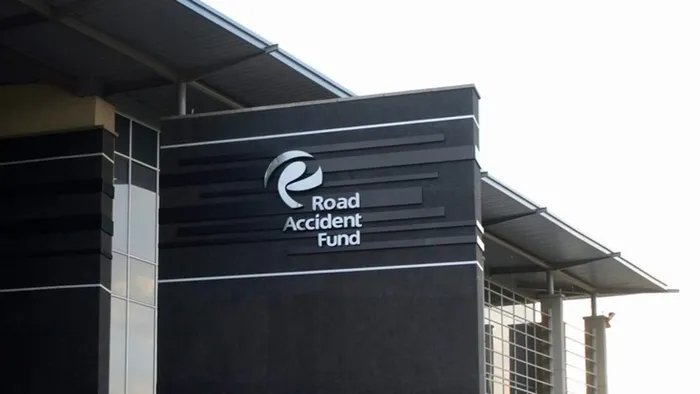RAF Plundered: MPs demand accountability amid R50bn scandal
Financial Mismanagment

The Road Accident Fund (the RAF faced a long road ahead in restoring public trust and implementing necessary reforms.
Image: File/Independent Newspapers
IN A scathing exposé of the Road Accident Fund’s (RAF) deep-rooted issues, the Standing Committee on Public Accounts (Scopa) last week revealed a shocking level of corruption and mismanagement within this critical state entity.
The revelations, presented by the Special Investigating Unit (SIU), painted a distressing picture of an organisation that has failed in its mandate to compensate victims of motor vehicle accidents while simultaneously serving as a cash cow for unscrupulous officials and service providers.
Action SA’s Alan Beesley minced no words when he declared: “To me, that is absurd, and if that is the case, they should all be fired.” This was in response to the revelation that basic financial practices like periodic bank reconciliations — what he termed “auditing 101” — were not being implemented despite the RAF’s R50 billion annual turnover.
The frustration among committee members was palpable, with the MK Party’s David Skosana criticising the use of tentative language in the SIU report: “The use of terms such as ‘allegedly’ when referring to malpractice by individuals in the SIU report could be likened to ‘gossip’.” He emphasised the need for factual information at this level of investigation.
Perhaps most concerning was the complete lack of vetting for RAF executives, as revealed by Scopa chairperson Songezo Zibi: “Not a single executive at the RAF has been vetted yet. All of them are in process, from the chief executive on down.” This failure extended to the chief investment officer, who had previously faced multiple charges of malpractice at the City of Johannesburg, only for those charges to be abandoned upon his resignation.
The financial irregularities uncovered were staggering. The SIU reported that R141 million appeared to be an irregular payment lacking board approval. Particularly troubling was the cancellation of the panel of attorneys without a backup plan, potentially opening another channel for financial losses.
As the DA’s Patrick Atkinson pointed out: “The ‘huge loss’ suffered by the RAF due to not having a proper panel of attorneys in place was because of the actions of the Board.”
The ANC’s Helen Neale-May highlighted a pervasive culture of non-compliance, noting that contract management had been “blatantly flouted”. This was evident in various contracts under investigation, including:
- Siyenza contract: R313 201 152.98
- Office Building contract: R17 000 000
- Fleet contract: R53 166 897
- Cleaning contract: R12 117 260.80
- SAP contract: R1 811 764
- Office Furniture contract: R40 000 000
All these contracts showed signs of procurement irregularities and fruitless expenditure, with investigations complete and matters being finalised for referral to civil litigation.
The investigation revealed a shocking level of complicity from legal professionals. Duplicate payments to attorneys and sheriffs emerged as a major concern. While some law firms cooperated with the SIU, others had not honoured their Acknowledgement of Debt agreements. As the MK Party’s Thalente Kubheka cautioned: “Once the media run with it, they would ‘lap it up’ but some of the individuals mentioned in the report had not been given an opportunity to have a right of reply yet.”
The EFF’s Chumani Matiwane added: “It was ‘quite concerning’ to hear that bribes might have been paid in relation to work demonstrated in the allocation of work to a single law firm.” He also highlighted the manipulation of criteria to favour specific suppliers in the Siyenza Project.
Despite 20 matters already referred to the National Prosecuting Authority (NPA) for prosecution consideration and 20 cases referred for disciplinary action, MPs expressed frustration at the slow pace of accountability. The DA’s Farhat Essack captured the sentiment perfectly: “There was ‘absolutely’ no accountability… The RAF was being ‘plundered’ and had become a cash cow for many individuals.”
The chairperson announced plans to seek legal advice on handling sensitive information, acknowledging concerns about reputational damage before the right of reply. However, he maintained that Scopa needed to hold dear their responsibility to ensure “people with valid claims were paid fairly and that this was done in a timely manner”.
Adding to the list of concerns was the mention of ransomware attacks affecting the RAF’s systems. While the SIU confirmed that no impact was detected in terms of the information needed for their investigation, Zibi emphasised the need for better cybersecurity measures: “Ransomware should not be problematic, especially in institutions that process large sums of money like the RAF.”
Zibi also announced plans to engage with other government departments, including the Minister of State Security and the Minister of Communication and Digital Technologies, to address systemic issues affecting the RAF’s operations. He further emphasised the need for improved vetting processes and better support from state agencies.
As the meeting adjourned, it was clear that the RAF faced a long road ahead in restoring public trust and implementing necessary reforms. The question remains whether these revelations will finally spur meaningful change or simply become another chapter in the fund’s troubled history.
